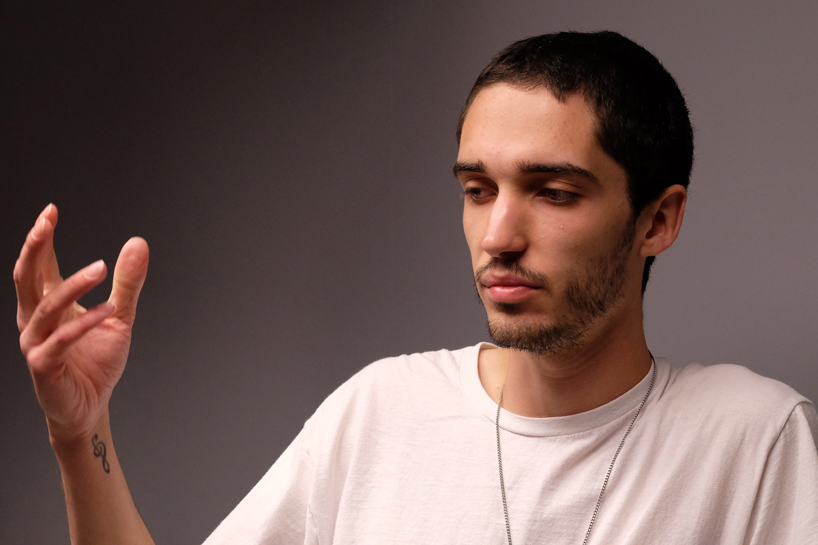
UMSL psychology student Remy Mallett is one of nine undergraduate students to receive a $1,000 research grant from the College of Arts and Sciences. The grant will be used to conduct research on lucid dreams. (Photo by August Jennewein)
Can you dream yourself to recall specific details and events? Maybe. Some experts on lucid dreaming think so, and University of Missouri–St. Louis psychology student Remy Mallett would like to prove it.
Mallett, who is majoring in psychology and biology, was one of nine undergraduate students to receive a $1,000 research grant from the UMSL College of Arts and Sciences in the spring.
“Remy is exactly the type of student the program is designed to support,” said Susan Welcome, assistant professor of psychology at UMSL. “He is a true scholar and one of the most intellectually curious people I have ever met. Remy is full of questions, both in the classroom and in the lab. He reads journal articles in his free time and wrote a paper over Spring Break out of pure interest. This opportunity to pursue his own line of research and to answer his own questions is one that will serve him well on his path as a future scientist. The grant has given him the confidence that his ideas are worthy of the support of the university and that means a lot to him.”
Mallett has been interested in lucid dreams for many years. Lucid dreaming is a state in which one has conscious awareness of the dream.
He transferred to UMSL from St. Louis Community College-Forest Park, and fell in love with the Department of Psychology.
“I got to jump right into the cool stuff here,” he said.
Mallett said the program has been just what he was looking for and he credits Welcome with making it that way.
“She is my mentor and has provided me with tremendous support,” he said. “She invited me to her lab and she’s the one who told me about the research grant opportunity. I didn’t realize how completely unrealistic it was at other universities to have an opportunity to do something like this as an undergraduate, but after telling people about it they were like, ‘Wow as an undergraduate you get to do this?’ It’s just an amazing opportunity on so many levels, in terms of just fun for me and someone who wants to do something like this. And for my graduate school applications, to have actual research to present and show, it’s an amazing opportunity.”
Mallett is looking for participants to take part in his study, which will ask dreamers to visit a room in his lab, complete a questionnaire and then go home and try to put themselves back into that room while dreaming.
“Lucid dreamers with enough control can go wherever they want to go,” he said. “I want to find out, if they ask their mind to bring it up in a dream, will the representation be accurate or not?
Participants will then be asked to take the questionnaire over to see if their memory had improved or if they remembered anything new.
“I’m hoping that their scores improve,” he said. “People always say the memory is there, you just have to get it. So why not try it in a lucid dream?”
To learn more about Mallett’s study, visit his website at http://www.stlld.com/umsl-research.html.















